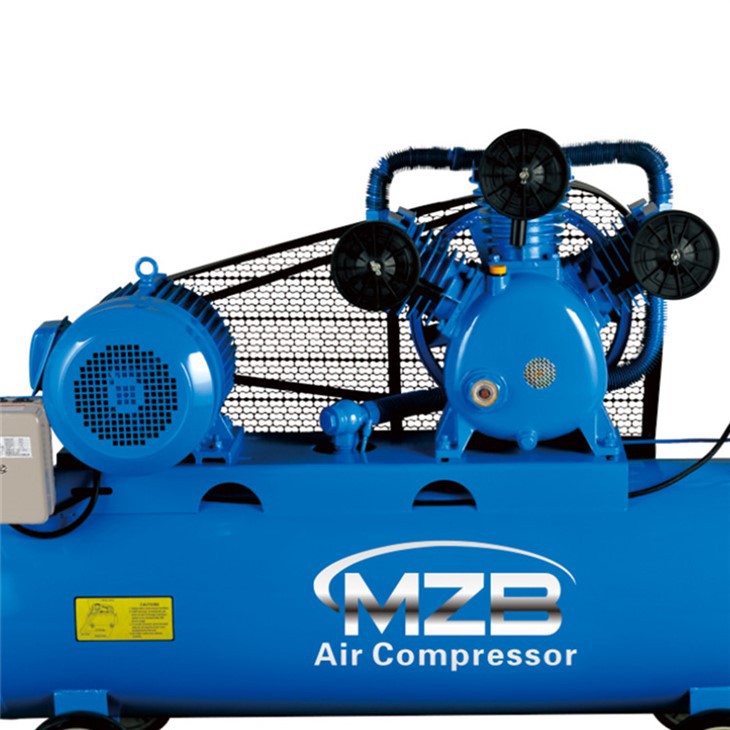Hey there! As a supplier of C Type Air Compressors, I often get asked whether these compressors can be used in a corrosive environment. It's a valid question, and one that I'm more than happy to dig into.
First off, let's talk a bit about what a C Type Air Compressor is. A C Type Piston Air Compressor is a type of piston - driven air compressor. These compressors are known for their reliability, efficiency, and ability to deliver a consistent supply of compressed air. They're used in a wide range of industries, from manufacturing to automotive repair.
Now, let's get to the heart of the matter: corrosive environments. A corrosive environment is one where there are substances present that can cause damage to materials over time. These substances can include chemicals like acids, alkalis, salts, and even moisture in some cases. For example, in a chemical processing plant, there might be various corrosive chemicals in the air or on surfaces. In a coastal area, the salt - laden air can be corrosive to metal components.
So, can a C Type Air Compressor be used in such an environment? Well, the short answer is it depends.
Factors Affecting the Use of C Type Air Compressors in Corrosive Environments
Material of Construction
The materials used to build the C Type Air Compressor play a huge role. Most standard C Type Air Compressors are made of metals like steel and aluminum. Steel is strong but can rust when exposed to moisture and certain chemicals. Aluminum, on the other hand, forms a thin oxide layer that provides some protection against corrosion, but it can still be attacked by strong acids and alkalis.
If the compressor is going to be used in a mildly corrosive environment, some basic protective coatings on the metal parts can be sufficient. For example, a powder - coated finish can act as a barrier between the metal and the corrosive agents. However, in a highly corrosive environment, more specialized materials might be required. Some manufacturers offer C Type Air Compressors with stainless - steel components. Stainless steel is much more resistant to corrosion compared to regular steel, making it a better choice for harsh environments.
Sealing and Enclosure
Another important factor is the sealing and enclosure of the compressor. A well - sealed compressor can prevent corrosive substances from entering the internal components. For example, if the compressor has good gaskets and seals around the access panels and ports, it can keep out dust, moisture, and chemicals. An enclosed compressor can also offer better protection compared to an open - frame design. An enclosure can shield the compressor from direct exposure to the corrosive environment, reducing the risk of damage.
Maintenance
Proper maintenance is crucial when using a C Type Air Compressor in a corrosive environment. Regular inspections can help detect early signs of corrosion. For instance, checking for rust spots on the metal parts or signs of degradation in the seals. Cleaning the compressor regularly can also remove any corrosive substances that have accumulated on the surface. And if any parts show signs of corrosion, they should be replaced promptly to prevent further damage.
Advantages of Using C Type Air Compressors in Corrosive Environments (with Proper Precautions)
If the right precautions are taken, there are some advantages to using a C Type Air Compressor in a corrosive environment. These compressors are generally very durable. With the right material upgrades and maintenance, they can continue to operate effectively for a long time. They also offer a high level of performance. Their piston - driven design allows them to generate high - pressure compressed air, which is often needed in industrial applications even in corrosive settings.
Disadvantages and Risks
However, there are also some disadvantages and risks. The cost of upgrading the compressor to make it suitable for a corrosive environment can be significant. For example, using stainless - steel components or adding specialized coatings can increase the upfront cost. There's also the risk that despite all the precautions, corrosion can still occur over time. This can lead to reduced performance, increased energy consumption, and eventually, the need for costly repairs or replacement of the compressor.
Case Studies
Let's look at a couple of real - world examples. A chemical manufacturing plant was using a standard C Type Air Compressor in an area where there were small amounts of corrosive fumes. At first, the compressor seemed to work fine. But after a few months, they started noticing rust on the outer casing and some of the internal components. They decided to upgrade to a compressor with a powder - coated finish and better seals. This new setup lasted much longer and had fewer issues.
On the other hand, a company in a coastal area tried using a basic C Type Air Compressor without any upgrades. The salt - laden air quickly corroded the metal parts, and the compressor failed within a year. They then switched to a compressor with stainless - steel components and an enclosed design. This new compressor has been running smoothly for several years now.
Conclusion
In conclusion, a C Type Air Compressor can be used in a corrosive environment, but it requires careful consideration. You need to assess the level of corrosion in the environment, choose the right materials and design for the compressor, and implement a proper maintenance plan. If you're in an industry where corrosive environments are common, a C Type Piston Air Compressor can be a great choice as long as you take the necessary steps to protect it.


If you're interested in learning more about how a C Type Air Compressor can work for your specific corrosive environment, or if you're looking to make a purchase, don't hesitate to reach out. We're here to help you find the best solution for your needs.
References
- Compressor Handbook: Industrial Air Compressor Systems, various authors
- Corrosion Science and Engineering textbooks
- Industry reports on the use of air compressors in different environments






